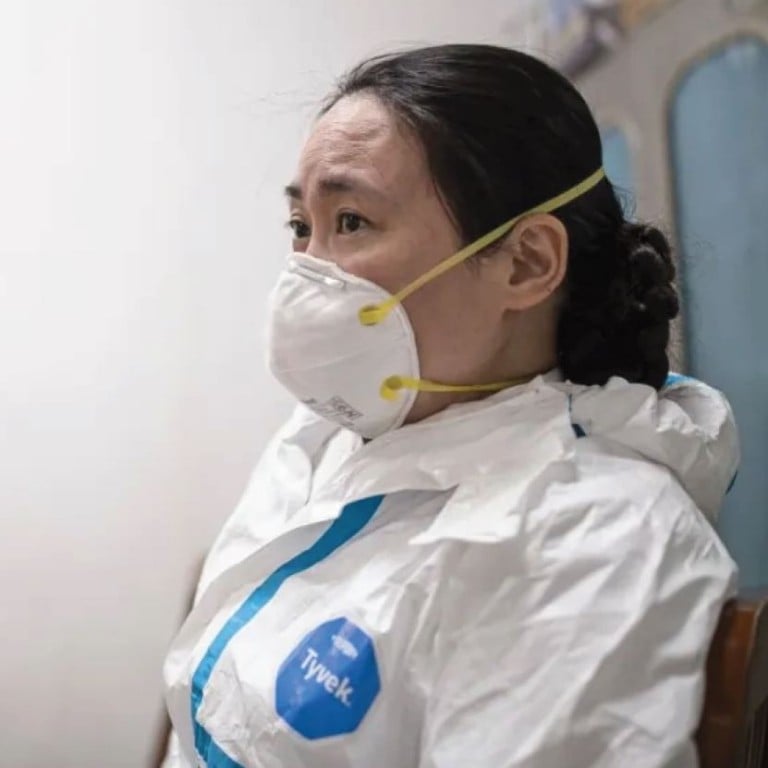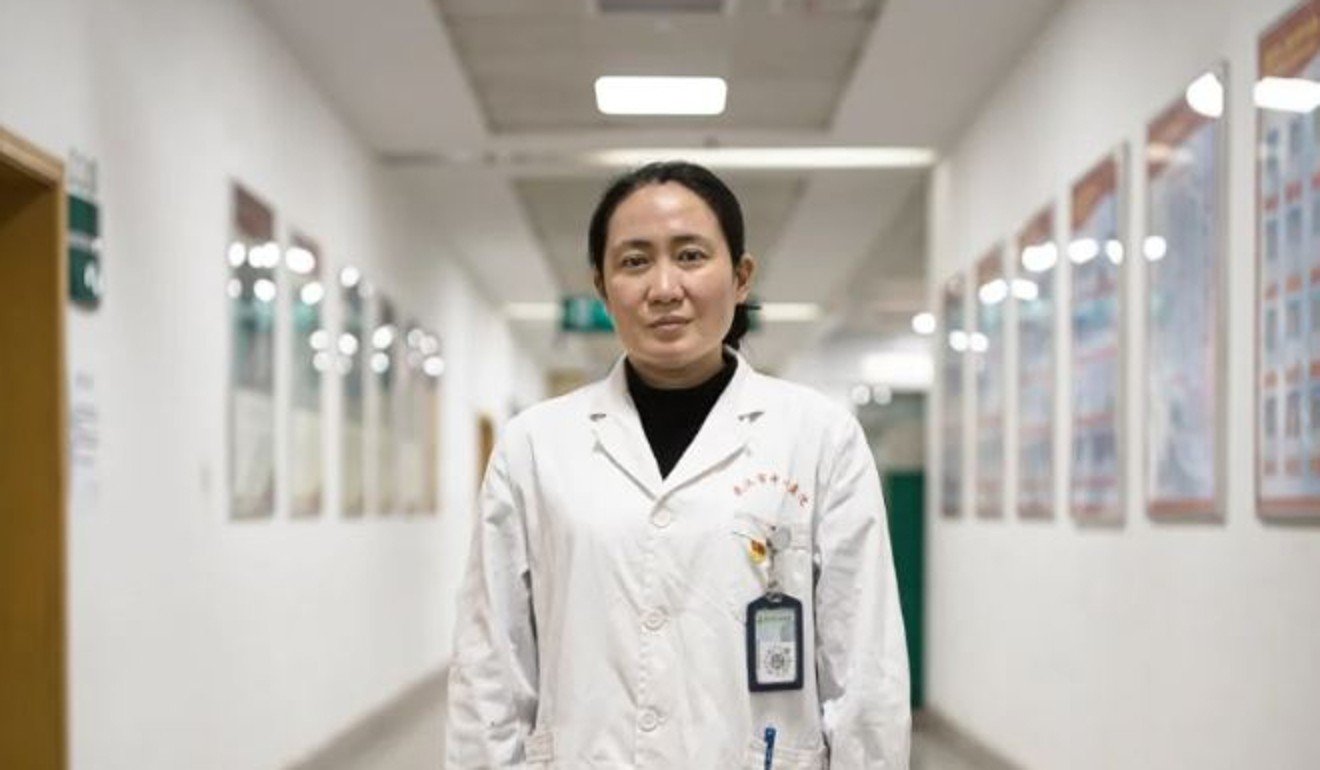
Coronavirus: Wuhan doctor says officials muzzled her for sharing report on WeChat
- Hospital emergency department head Ai Fen tells magazine she posted information on Sars-like virus in December and sounded alarm
- Her interview, suggesting an opportunity for authorities to issue early warning had been missed, was later deleted
Ai Fen, director of the emergency department at Wuhan Central Hospital, told Chinese magazine People that she posted an image of a diagnostic report on social network WeChat on December 30, showing that the patient had a pneumonia infection caused by a Sars-like coronavirus.
Ai’s interview suggests local health authorities in Wuhan, the centre of the epidemic, missed an opportunity to issue a warning about an imminent outbreak before the virus spread and infected more than 117,000 people globally and caused over 4,200 deaths.
It was published on Tuesday but later deleted from the magazine’s WeChat account, prompting angry internet users to repost the article on other platforms. The magazine is published by the state-run People’s Publishing House.
It also coincided with President Xi Jinping’s first visit to Wuhan since the crisis began, during which he praised residents for their hard work and sacrifices.
In the interview, Ai said she initially shared the diagnostic report with a messaging group on WeChat and its members then circulated the photograph.
Ai said the report, which she had been sent by a colleague, concerned her because the infection appeared to be similar to severe acute respiratory syndrome.
The Sars epidemic 17 years ago infected more than 8,000 people worldwide and killed over 800, according to the World Health Organisation.
Ai told the magazine she alerted the hospital’s community health service centre and infectious disease control department immediately.
“I even grabbed our hospital respiratory department director, who happened to be passing my office, and told him that one of his patients was confirmed to have been infected with a Sars-like virus,” she said.
According to the magazine, Ai said she was told by superiors the day she sounded the alarm that Wuhan’s health commission had issued a directive that medical workers were not to disclose anything about the virus, or the disease it caused, to avoid sparking a panic. Soon after, the hospital reminded all staff that public disclosure related to the illness was forbidden.
Two days later, an official in charge of the hospital’s supervision department gave Ai a dressing down for “spreading rumours” – a reference to the photograph she had posted online.
The official told Ai to notify all staff in her department not to disclose anything about the disease – and to say nothing about it to anyone, not even to her husband, according to the magazine.
“My mind just went blank,” Ai said. “He wasn’t criticising me for not working hard … he made me feel that I alone had ruined the future of Wuhan. I was in despair.”

Ai said Hu Ziwei, a nurse at the hospital, became infected about a week later. But while the hospital originally noted in her diagnostic report that she was suffering from “viral pneumonia”, it later changed the description of her ailment to “infections”.
Ai told People that she believed her actions did not constitute any wrongdoing.
“I notified my hospital and I never disclosed the patient’s personal details when I discussed a particular case with other doctors,” she said.
“How could I refrain from discussions with my medical colleagues knowing that a new and significant virus had emerged? I followed my intuition as a doctor – so what mistakes did I make?”
Ai’s comments also shone a light on views about the outbreak’s source.
In the beginning, these patients all shared some connection with the market. But as the days went by, more cluster cases – and especially family cluster cases – emerged.
“If there’s no people-to-people transmission, why did the patients continue to increase after the Huanan market was closed?” Ai told the magazine.
Wuhan Central Hospital would become one of the city’s most severely hit medical facilities, with four doctors including Li succumbing to Covid-19. Another two of the hospital’s doctors are reportedly in critical condition.
“If these doctors could have been warned [about the disease] earlier, they would not have died. So I really regret [that I didn’t warn more people],” she said.
“If I could have known [how the outbreak would turn out] I would have told everyone, even though I was warned,” she said. “I have thought many times – if only time could be turned back.”
Purchase the China AI Report 2020 brought to you by SCMP Research and enjoy a 20% discount (original price US$400). This 60-page all new intelligence report gives you first-hand insights and analysis into the latest industry developments and intelligence about China AI. Get exclusive access to our webinars for continuous learning, and interact with China AI executives in live Q&A. Offer valid until 31 March 2020.

